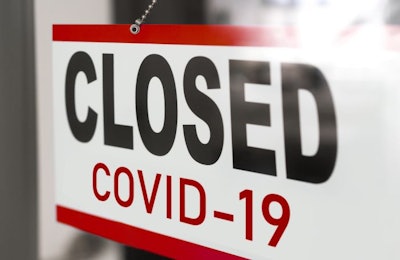
The Brazilian meat company JBS announced that it will seek legal remedies after a local labor authority ordered the closure of a poultry plant in southern Brazil, in the town of Ipumirim, Santa Catarina, to contain the coronavirus.
The company told Reuters that the plant employs more than 1,400 people and processes about 135,000 chickens a day.
According to information from state government entities, the closure occurred after an inspection in which “found serious irregularities, mainly related to the absence of safe distancing between workers on the production line and the lack of oversight measures to control the spread of the virus.”
After the inspection, 86 cases of COVID-19 were confirmed at that JBS plant, which is almost 5% of the workers who work there. According to the authorities, they also represent almost 2% of all COVID-19 cases in Santa Catarina and 14% in the region.
JBS plant closures due to a coronavirus outbreak have also been reported in other states, such as the one in Passo Fundo, in the state of Rio Grande do Sul. JBS declared the closings unjustified, as the company has strict prevention protocols against the spread of the coronavirus at all its units.
Brazilian Renderers Association manifesto
Frustrations over meat processing plants closures, and in this case, of poultry, extend beyond the companies directly involved. For example, the Brazilian Renderers Association (ABRA) has just issued a manifesto (declaration) for the closure of poultry processing plants in Rio Grande do Sul addressed to the head of the cabinet of the Brazilian Presidency.
This manifesto emphasizes the rigorous hygienic-sanitary regulations issued by the Ministry of Agriculture, Livestock and Supply, as well as the guidelines of the World Health Organization and the Ministry of Health that the food and feed industries follow to prevent the spread of the new coronavirus.
ABRA also emphasizes that it is imperative to note the risk of enormous impact that may affect the entire chain of foods and feeds, with serious consequences for the environment. And to demonstrate this scenario of potential economic losses and environmental damage that can occur from closures, the association gives an example of a plant processing 300,000 birds a day, which produces 13,104 metric tons (MT) of food and generates 5,616 MT of waste a month.
Not producing this quantity of chicken in a single plant, means 37.44 million food rations of 350 g each, which feeds 1.25 million people, would not be produced a year (considering 30 portions per month). Thus, the compulsory stoppage of slaughtering plants not only damages the production chain of all animal origin products as well as animal production, but also directly affects food supply for the population, in addition to the production of ingredients for animal feeds.
The comparison published by ABRA extends to affections to contract farmers and producers of corn and soybeans in the country. However, something that would seem to remain at the end of the chain and that few see in a plant like the one in the example, is that it stops producing 2,527 tons of ingredients for animal feed, including fats and meals.
Along with that, there is also the imminent risk of environmental catastrophe caused by two aspects, which are the destination of several tons of inedible waste from the plant and what implies the depopulation of farms.
Since it is not possible to allocate all depopulated birds, carcasses, and animal waste to animal recycling plants and since composting is at an additional cost, the other possible destination would be landfills. This last alternative is even more onerous and totally contrary to public policies of not using open landfills.
View our continuing coverage of the coronavirus/COVID-19 pandemic.


















